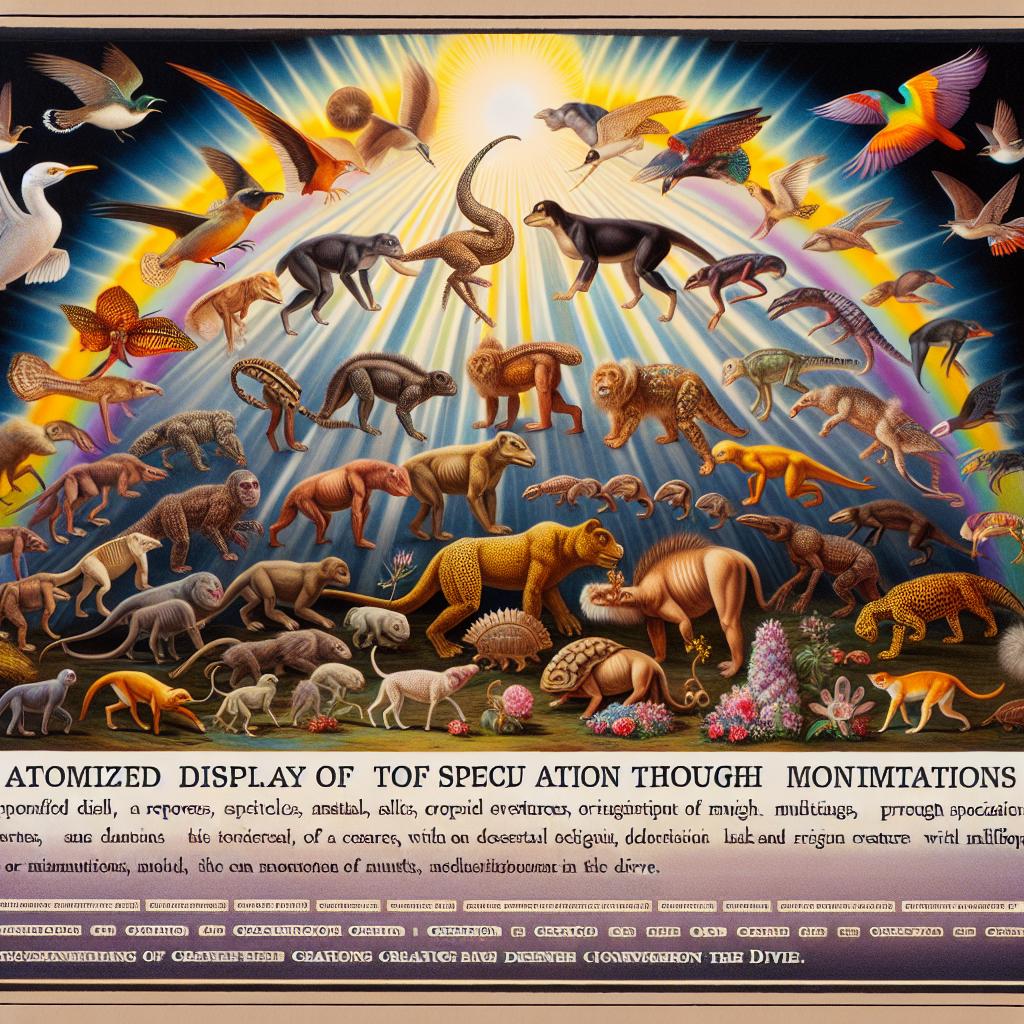
Christian Guide to Speciation: Understanding Creation Through Questions and Answers
Published: 14 April 2024
Speciation: Questions and Answers
In this article, we will explore the concept of speciation from a young-earth creationist perspective. Speciation refers to the process by which new species are formed. While mainstream science often attributes speciation to natural selection and gradual changes over long periods of time, we will examine how a biblical understanding can provide a different perspective on this topic. Through the lens of a young-earth creationist worldview, we will consider how mutations, adaptation, and other mechanisms play a role in the formation of new species.
1. What is Speciation?
Speciation is the process through which new species arise. According to the biblical account of creation, God created distinct kinds of organisms, and within those kinds, variations have occurred over time. These variations are often referred to as microevolution, where changes within a kind can result in differences in traits or characteristics. However, it is important to note that these changes do not lead to the formation of entirely new kinds of organisms.
2. Can Mutations Lead to Speciation?
Mutations are changes in the genetic material of an organism that can potentially result in new traits or characteristics. While mutations can occur naturally, it is crucial to recognize that most mutations are either neutral or detrimental to an organism's survival. Rarely do mutations provide beneficial changes that lead to the development of new species.
From a young-earth creationist perspective, we understand that God created organisms with incredible genetic diversity within each kind. This pre-existing genetic variability allows for adaptation to changing environments but does not support the idea that mutations alone can drive the formation of entirely new kinds of organisms.
3. Adaptation and Speciation
Adaptation is an essential mechanism that allows organisms to survive and thrive in their environments. Within a kind, organisms possess traits and characteristics that enable them to adapt to specific conditions or challenges they may face. This adaptability is a result of the genetic variability that God built into each kind.
When faced with environmental changes or new ecological niches, organisms can exhibit rapid adaptation. This adaptation allows them to better survive and reproduce in their new circumstances. However, it is crucial to note that this adaptation does not lead to the formation of new kinds of organisms but rather demonstrates the incredible design and flexibility within each kind.
4. Reproductive Isolation and Speciation
Reproductive isolation refers to the mechanisms that prevent different species from interbreeding and producing fertile offspring. While mainstream science often views reproductive isolation as a key factor in speciation, a young-earth creationist perspective offers a different understanding.
From a biblical standpoint, reproductive isolation is not a driving force behind the formation of new species. Instead, we recognize that God created organisms with the ability to reproduce after their own kind. While variations within a kind can occur, these variations do not lead to the formation of entirely new kinds of organisms.
5. Transitional Fossils and Speciation
Transitional fossils are often cited by proponents of evolution as evidence for common ancestry and gradual changes leading to new species. However, from a young-earth creationist perspective, we can interpret the fossil record differently.
The fossil record provides evidence of distinct kinds of organisms that were created separately by God. Rather than representing transitional forms, these fossils show the incredible diversity within each kind and the variations that have occurred over time. This understanding aligns with the biblical account of creation and challenges the notion that transitional forms necessarily indicate speciation.
6. Why This Matters
Understanding speciation from a young-earth creationist perspective allows us to appreciate the complexity and diversity of life on Earth while remaining faithful to the biblical account of creation. It reminds us that God's design includes incredible genetic variability within each kind, enabling organisms to adapt and thrive in changing environments.
Think About It
Consider the following questions as you reflect on the topic of speciation:
- How does a young-earth creationist perspective on speciation differ from mainstream science's understanding?
- What evidence supports the idea that God created organisms with incredible genetic variability within each kind?
- How does the concept of adaptation challenge the notion of speciation through gradual changes over long periods of time?
- How can our understanding of speciation impact our view of the biblical account of creation?
As we delve into the intricate topic of speciation, it is essential to approach it with an open mind and a willingness to explore alternative perspectives. By considering the biblical perspective alongside scientific observations, we can gain a deeper appreciation for the wonders of God's creation.
